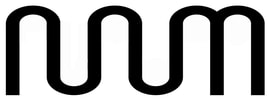Not the end of the World
by
Nan Wigington
Nobody believed Jo when she told us about the butterflies, how they broke from the flare's black hood, their lacy wings fluttering past the empty train cars, over the fence, and onto our dirt pan lawns. One landed on her right arm and sizzled like a lit cigarette. Couldn't we see the scar? Smell the sulphur?
Even her mother shook her head. And her father, who was buttoning his coat, yawned, ruffled his girl's hair and walked down the streets to the refinery.
Jo tried to keep the spiders a secret, but she couldn't help herself. She told us how they emerged from a tear in a tank, a black spill of furry legs, jaws, and abdomens crowding into the air, spreading along the creek, floating on the water, out through the tunnel, and under the highway.
Jo said the end was coming. Seven years old, and she's all Armageddon. As if living in the shadow of the refinery isn't going to test our souls. Like we don't know, the company is demon and god, giver of paychecks and debt, life and death.
We did see the rats, a vaporous trail from a distillation tower, scurrying in a line down, up, down across the pipes, and finally into the weeds.
“It's coming,” Jo said.
But we all went to bed.
In the morning, the explosion rocked our front doors open and filled the sky with orange heat and hissing flames. Metal twisted, turned white and rose like bones from a grave. Plastic melted and dripped red onto the roads. Towers tumbled. Valves visited rooftops and burned holes through slate shingles.
The refinery told the newspapers it was a minor setback. Repairs would only take a day, a month, a week. No one was to blame. Unless it was one of the night's workers, someone who got sleepy and made a mistake. Probably Jo's father. Hadn't we all foreseen it? There he was -- so many overtime hours -- reaching for the wrong switch, the ignition launching his body through the combusting sky, punching a hole in heaven.
Even her mother shook her head. And her father, who was buttoning his coat, yawned, ruffled his girl's hair and walked down the streets to the refinery.
Jo tried to keep the spiders a secret, but she couldn't help herself. She told us how they emerged from a tear in a tank, a black spill of furry legs, jaws, and abdomens crowding into the air, spreading along the creek, floating on the water, out through the tunnel, and under the highway.
Jo said the end was coming. Seven years old, and she's all Armageddon. As if living in the shadow of the refinery isn't going to test our souls. Like we don't know, the company is demon and god, giver of paychecks and debt, life and death.
We did see the rats, a vaporous trail from a distillation tower, scurrying in a line down, up, down across the pipes, and finally into the weeds.
“It's coming,” Jo said.
But we all went to bed.
In the morning, the explosion rocked our front doors open and filled the sky with orange heat and hissing flames. Metal twisted, turned white and rose like bones from a grave. Plastic melted and dripped red onto the roads. Towers tumbled. Valves visited rooftops and burned holes through slate shingles.
The refinery told the newspapers it was a minor setback. Repairs would only take a day, a month, a week. No one was to blame. Unless it was one of the night's workers, someone who got sleepy and made a mistake. Probably Jo's father. Hadn't we all foreseen it? There he was -- so many overtime hours -- reaching for the wrong switch, the ignition launching his body through the combusting sky, punching a hole in heaven.

